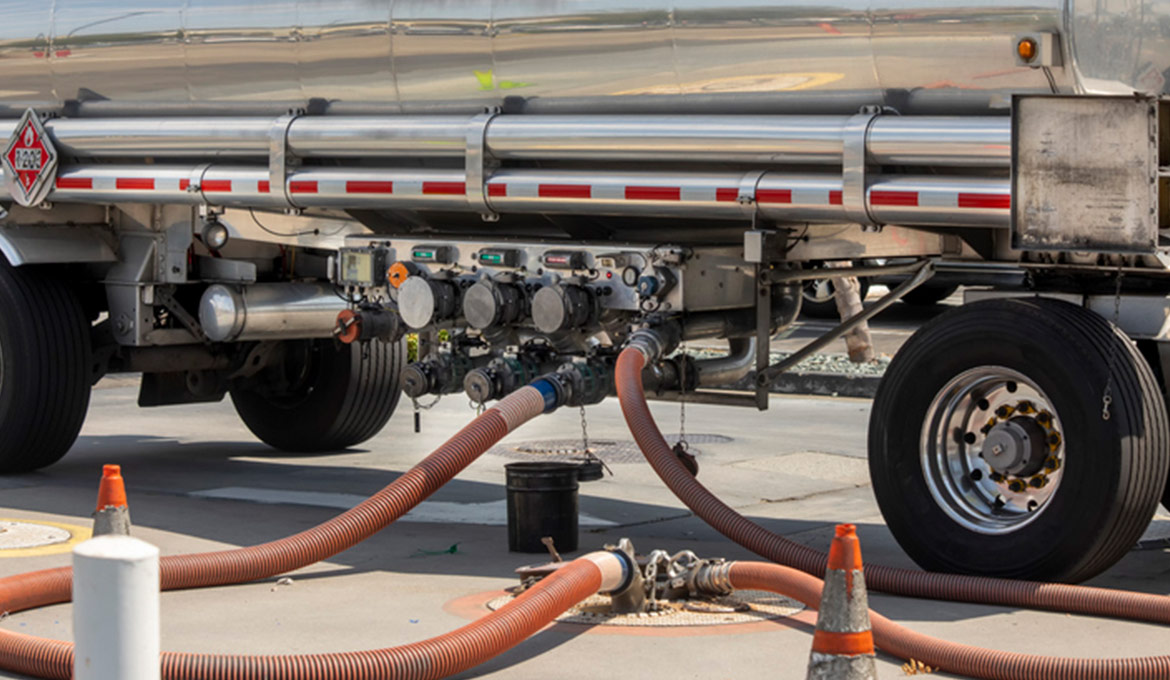
5 Reasons to Automate Your Fuel Delivery
What do convenience store owners, fleet directors and bus terminal managers all have in common?
These are the folks who manage the fuel inventory for their company. Cars, trucks, and buses all need gas. As you know, there is plenty of risk and loss involved in managing a retail fuel supply. Poor fuel management can translate to less profit for the company which the company passes onto the customer.
Fuel is the number one expense for your facility. Fuel inventory variance adds a layer of complexity. You may be thinking, “How can a gallon of fuel change? A gallon is a gallon, right?”
Well, no.
Trust us when we say that there’s a lot of science behind fuel inventory variance. Suffice it to say that the volume calculation of fuel within its container represents an imperfect science. This results in reading errors.
To make matters worse, many Fuel Directors (we’ve been told) still track their inventory the analog way with spreadsheets. Not only is this cumbersome but also represents a huge waste of time, energy, and money. If you transfer imperfect data to your accounting system on top of flawed fuel readings, then it will be impossible to determine the true cost of your company’s fuel inventory.
But wait, here are a few more surprises.
Other factors, like weather, theft, leaks, and global uncertainty all affect fuel supply.
Americans from coast to coast saw or experienced many extreme weather events these past several months. From raging fires in the West to a standstill on I-95 that kept drivers snow-trapped overnight. Nashville, home to Titan Cloud Software, was immobilized for two days after six inches of heavy snow fell and below-freezing temperatures made a surprise appearance.
We don’t think about fuel supply until the demand exceeds it, and then we rush out to top off our tanks and fill our generators. But, what if your local retail fuel outlet didn’t plan ahead of the weather report? What if you bought a bus ticket to visit friends and the depot didn’t factor in weather conditions? What if your area loses power and the local electric or cable company didn’t gas up its fleet?
This is a potential worst-case scenario awaiting your business when you have no weather contingency plan that makes fuel inventory planning a priority.
On the flip side, fuel delivery during bad weather is often hampered. Does your fuel distributor have enough deliveries scheduled? How large is their fleet? Where are their distribution centers and who’s in their network of local distributors? Can they guarantee efficient fuel management? This is when custom automated workflows can become a lifesaver.
Leaks in your fuel storage tanks and containers impact more than the environment. Although rigorous compliance is reason enough to take charge of your fuel inventory, leaks also represent revenue loss.
Leakage won’t be found on your spreadsheets. Thanks to innovative technology there’s a way to analyze the changes in height and volume within the tank that allows for rapid and sensitive leak detection. Even tiny leaks can be spotted fast whereas in the past it would have taken days or weeks to solve the problem. When retail margins are slim, every drop matters.
Back in the 70s during the oil embargo, when gas was in short supply and car lines were long, it was common to read stories of thieves siphoning gas from a car parked in a homeowner’s driveway. Today, theft often happens in a less obvious way.
Vendors or carriers may “steal” through inaccuracies. Siphoning fuel this way happens through an inaccurate fuel drop. If you’re monitoring your automatic tank gauge (ATG), you should be able to catch this. Titan’s ATG management system will alert you to discrepancies between your tank amount and fuel sales.
We don’t want to sound alarmist. Fuel inventory variance could be inadvertent and no fault of the carrier. Because fuel is a liquid, it expands and contracts based on temperature. Liquid contracts when it’s cold, so the actual fuel delivery and the bill of lading may differ. A cold tanker could be the cause of the variance.
Below ground, the variance may happen for a different reason. Fuel can contract inside the tank when the outside temperature is warmer than the below-ground temperature. There would appear to be an inventory variance even though you received the right amount of fuel.
You can see why the technology protects both the retail fuel stop and the vendor.
High gas prices tend to have a ripple effect on consumers’ pockets and businesses’ profits. Gas prices in the U.S. typically increase in the Spring and then decrease in the Fall mainly because demand declines following the warm summer months. But, for the past several months, gas prices have been rising.
The cost of crude oil worldwide is affecting gas prices at the pump and softening demand. The economics of low demand/high supply is off-kilter because the cost of crude oil accounts for more than half the price of a gallon of gas. Couple that with European natural gas prices going crazy due to the harsh words traded between Russia and the West and panic-buying hit the market sending prices through the roof. Demand for heating oil is also strong, allowing for crude oil prices to remain high.
As long as global uncertainty continues, fuel inventory planning is more important than ever.
There are many ways convenience store owners and operators can lose money through fuel inventory variance. The good news is that technology exists that can improve your fuel planning. You can manage risk despite extreme weather events, global uncertainty, or fraudsters.
Learn more about how Titan can perfect your retail fuel management.
